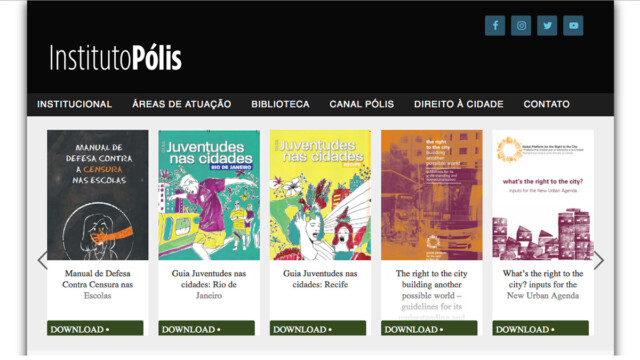Mapeamento Instituto Polis
Part of the research directed by professor Cibele S. Rizek, aimed at understanding the social dynamics of the then key agents of urban change—NonGovernmental Organizations (NGOs)—in order to track the discourses and actions related to urban and social issues in Brazil. Funded by the National Council for Scientific and Technological Development (CNPq) and the São Paulo Research Foundation (FAPESP), it analyzed how some previous roles of the State were delegated to a mostly private sector, and to what extent it represented an actual gain in efficiency and scope of solutions.
My role was to map the publications of the Polis Institute and quantifying the themes and recurrences, also conducting interviews with key members. By selecting an institute with a long trajectory, we could search for the themes approached along the years and see the patterns that emerged as possible evidence of the social discourses and practices. We also tried to grasp the extent to which funding ended up guiding the actions of the institution, and how much that could compromise the core mission and values in the long run. Since the conclusion of the research (2006) to this date (2019) the role of NGOs in itself seems to have radically changed in some countries, sometimes even losing legitimacy and relevance.
| Areas of Interest: | Urban Studies, NGOs, Social Movements |
| Institutions: | USP – EESC – CNPQ |
| Location: | Sao Paulo, Brazil |
| Status: | Finished |
| Year: | 2006 |
| Research Team: | PH.D. Cibele S. Rizek, R.Resck |
| Role: | Junior research assistant |
